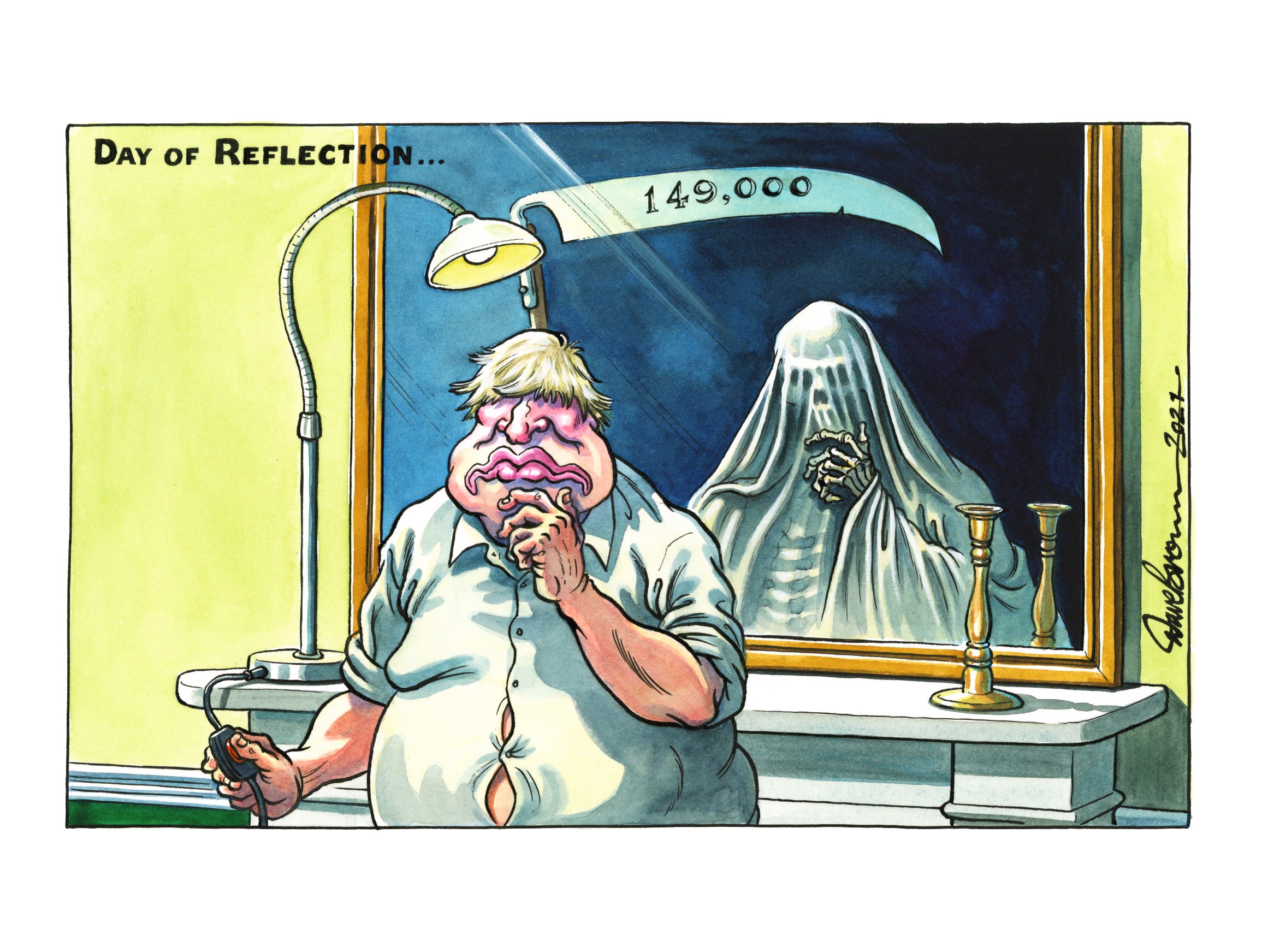Britain and the EU must compromise on vaccines to beat coronavirus
Editorial: We should be setting an example of internationalism and cooperation because no one is safe until we are all safe

The first anniversary of the announcement of the first lockdown was, inevitably, a moment for reflection and for remembrance of the more than 140,000 loved ones taken before their time by the disease, and the many more affected by its aftermath and wider impact.
One of the many things that would have probably startled the British at the time would be if France was placed on a “red list” of banned countries for travel by the spring of 2021, and that a prohibition on foreign holidays might last until July or longer – with a £5,000 fine attached to any attempted escapes.
The reasons might have been better understood – the persistence of Covid-19 and the successive waves of infections that have hit the world ever since the virus emerged in late 2019. The better prognostication would have been the arrival of effective vaccines in record time and delivered in record numbers – more than 800,000 in one day. More depressing would have been the notion of post-Brexit Britain and the UK being embroiled in an ugly “vaccine war”.
Indeed, had the extent and longevity of the draconian restrictions introduced last year been realised at the time, they would certainly have had greater scrutiny, and provoked more opposition. Yet few thought they would last, on and off, for as long as they did. Boris Johnson made vague mention of a review in three weeks when he told the nation to “stay home”.
He was reluctant to impose the lockdown – too slow to act, with hindsight – but even he had to eventually bow to the epidemiological realities. He has had to do so again and again. He is having to do so again now, with the prospect that the roadmap to recovery may take longer in some respects than was previously assumed. We may be sure that Mr Johnson is far from enthusiastic about extending the misery.
Read more:
Chris Whitty, the chief medical officer who has retained his status as a trusted voice, warns that another wave in the UK next winter or after seems certain, and the necessity must be that coronavirus is suppressed as far as possible in the meantime. That means that the time “bought” in the present lockdown to reach herd immunity through an accelerated vaccine programme cannot be wasted, as it was in the past when the country failed to develop an effective tracing system for positive Covid-19 tests. It is all the more distressing, then, that the European Union is pursuing a fairly naked policy of vaccine nationalism. There is a certain grotesque absurdity in the EU insisting on hoarding the Oxford-AstraZeneca vaccines manufactured in the EU at a time when many of Europe’s governments and citizens seem reluctant to want to use them. Do the Europeans want the AstraZeneca jab or not? They do not seem to be clear at the moment.
The EU rightly wants to protect its citizens and to make pharmaceutical companies honour their commitments. The commission’s quarrels are with the pharma companies, not the UK, and they should be settled, as swiftly as possible, in the courts. The answer is not to impose arbitrary export bans on vaccines and precursor materials from the EU to the UK, or anywhere else, because, as has been mooted, some countries (such as the UK) have simply been more efficient in rolling out the doses. The very big risk is that the UK, and others, will retaliate by banning exports of vaccines and precursors to the EU. In a world of complex and delicate supply chains crossing borders, the net impact of all that would be to bring vaccine production and distribution to a complete standstill. That does not seem to be a sensible outcome just as the virus is mounting a renewed attack on Europe’s citizens. Coronavirus is not fussy about whether the victims are citizens of the EU or not.
There are some rumours that the UK and the EU will compromise over what is the ultimate common challenge, and share the output of Europe’s pharmaceutical industry. It would be good if a similar accommodation could be reached with the world’s biggest producer of AstraZeneca – Serum, in India.
Under the principle that no one is safe until all are safe, the rich west and emerging economies should also make some provision for more vaccines to be sent to the global south, where vaccination has barely begun, and where new more deadly mutations are already evolving. Britain and the EU, trying to make their new relationship work, should be setting an example of internationalism and cooperation. If not, then Britain should take a unilateral decision never to ban vaccine exports, to the EU or anywhere else, because it is simply counterproductive, indeed disastrous. London can settle its scores with the EU, if it wants, in other ways and at a more opportune moment.
Join our commenting forum
Join thought-provoking conversations, follow other Independent readers and see their replies
Comments
Bookmark popover
Removed from bookmarks